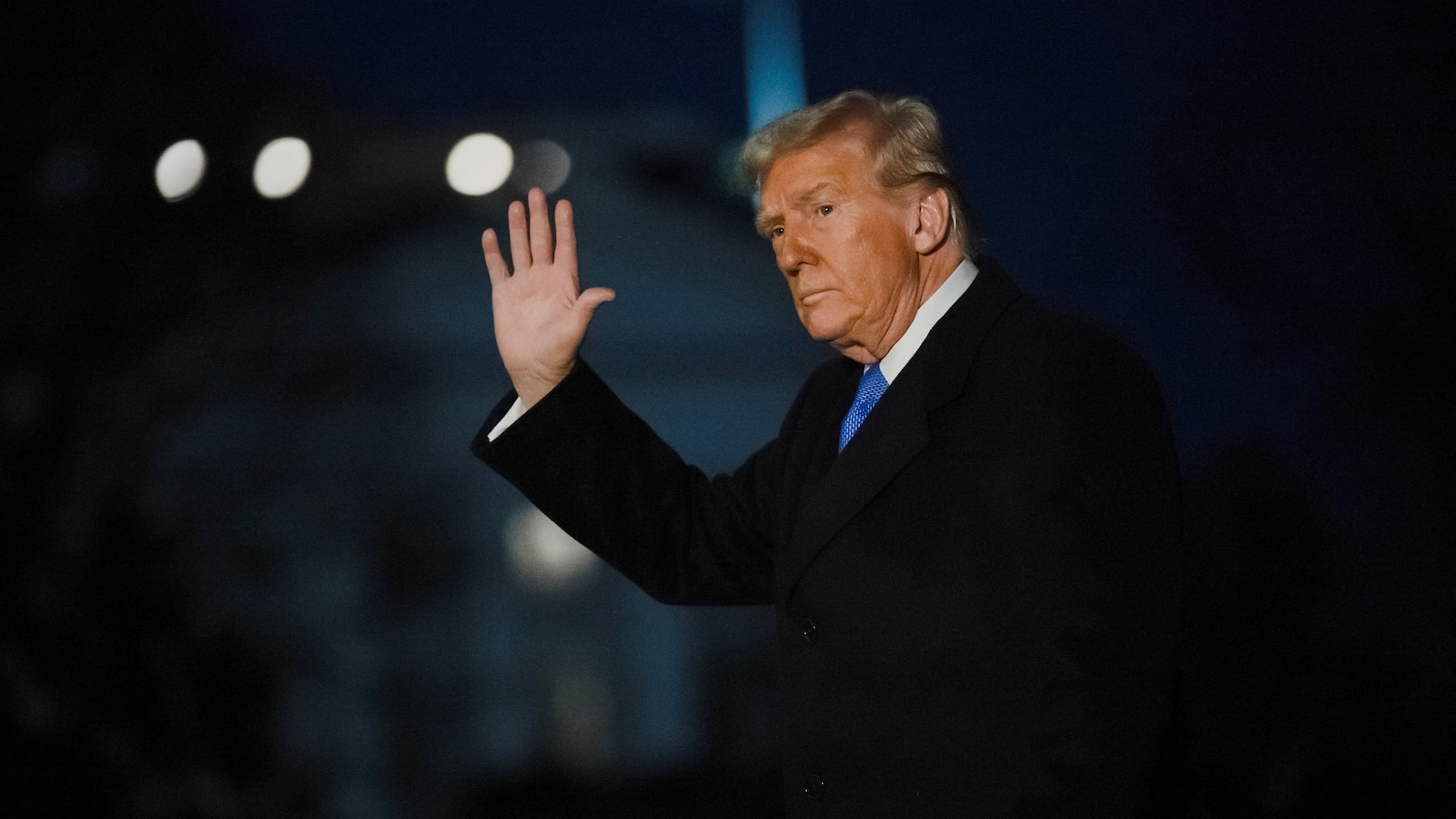Trump’s Bold Defense: Are Tariffs the Key to a Thriving Economy?
In recent discussions surrounding economic policy, former President Donald Trump made a striking assertion: he believes that tariffs represent one of the most significant achievements in U.S. economic policy. This statement is provocative, raising a multitude of questions regarding the long-term impact of tariffs on the economy and their effectiveness in fostering growth. As we delve deeper into this contentious topic, we will explore the arguments for and against the use of tariffs, their implications for American businesses and consumers, and the broader economic landscape.
The Rationale Behind Tariffs
Tariffs, essentially taxes imposed on imported goods, are designed to make foreign products more expensive compared to domestic goods. Trump’s administration implemented a series of tariffs, particularly on Chinese imports, with the intention of reshoring manufacturing jobs and reducing the trade deficit. The underlying rationale is straightforward: by making imported goods less competitive, domestic industries can thrive, leading to job creation and economic growth.
Supporters of tariffs argue that they protect American jobs and industries from foreign competition. They contend that tariffs help level the playing field, especially when other countries engage in unfair practices such as currency manipulation or subsidizing their industries. This protection is seen as vital for sectors like steel, aluminum, and manufacturing, which have been historically significant to the U.S. economy.
Benefits of Tariffs
- Job Protection: By imposing tariffs, the government can help protect domestic jobs from foreign competition.
- Encouragement of Domestic Production: Tariffs can incentivize companies to produce goods domestically rather than rely on imports.
- Reduced Trade Deficit: By making imports more expensive, tariffs can help reduce the trade deficit, promoting a more balanced economy.
- National Security: Certain industries are deemed vital for national security, and tariffs can ensure these industries remain robust in the face of foreign competition.
The Counterarguments
Despite the potential benefits, the use of tariffs is not without its criticisms. Economists and business leaders have raised concerns about the unintended consequences that tariffs can impose on the economy.
Drawbacks of Tariffs
- Increased Consumer Prices: Tariffs often lead to higher prices for consumers, as companies pass on the cost of tariffs to buyers.
- Retaliation from Other Countries: Tariffs can provoke retaliatory measures from other nations, leading to trade wars that can harm exporters.
- Supply Chain Disruptions: Many U.S. businesses rely on global supply chains. Tariffs can disrupt these supply networks, leading to inefficiencies and increased costs.
- Limited Economic Growth: While tariffs may protect certain jobs, they can also stifle innovation and growth by making imported goods more expensive and limiting competition.
Impact on the U.S. Economy
The impact of Trump’s tariffs on the U.S. economy has been mixed. On one hand, certain industries, particularly in manufacturing, have reported growth and job creation. For instance, the steel and aluminum industries saw a boost as tariffs limited foreign competition. However, on the other hand, many consumers faced higher prices for goods, from household appliances to automobiles, leading to a burden on the average American family.
Moreover, the trade war with China, which escalated during Trump’s presidency, had far-reaching consequences. While some sectors benefited, others, such as agriculture, suffered significantly. Farmers faced retaliatory tariffs from China, leading to lost markets and profits.
The Broader Economic Landscape
As we evaluate the question of whether tariffs are indeed the key to a thriving economy, it’s essential to consider the broader economic landscape. Economies are complex systems where multiple factors influence growth and stability.
Globalization and Supply Chains
The modern economy is heavily influenced by globalization, where supply chains span across continents. Many industries depend on imported materials to manufacture products efficiently and cost-effectively. Tariffs disrupt these supply chains, potentially harming industries that rely on foreign goods. For instance, the tech industry, which often sources components from various countries, could face increased costs and delays due to tariffs.
Innovation and Competition
Furthermore, tariffs can have a chilling effect on innovation. By shielding domestic industries from foreign competition, there may be less incentive for companies to innovate and improve their products. Competitive pressures often drive advancements in technology and efficiency, which can ultimately benefit consumers and the economy as a whole.
Tariffs in the Future: A Balancing Act
As we look to the future, the question remains: can tariffs be effectively utilized as a tool for economic growth? While they may offer short-term benefits to certain industries, a balanced approach is essential for sustainable growth. Policymakers need to weigh the benefits of protecting domestic industries against the potential drawbacks of reduced competition and increased prices for consumers.
Moreover, there is a need for comprehensive trade policies that address fundamental issues such as currency manipulation, labor standards, and environmental protections, rather than relying solely on tariffs. A more holistic approach could foster a more equitable and prosperous economic environment.
Conclusion
Trump’s bold defense of tariffs as a cornerstone of U.S. economic policy reflects a significant shift in how trade is viewed in America. While there are compelling arguments for the use of tariffs to protect domestic industries and jobs, the broader implications cannot be ignored. As the economy continues to evolve, the challenge will be finding the right balance between protectionism and the benefits of a competitive, open market.
Ultimately, the success of tariffs as a key to a thriving economy may depend on how they are implemented and the accompanying policies that support innovation, competitiveness, and consumer protection. As the debate continues, it is clear that tariffs will remain a contentious issue with significant implications for the future of the American economy.
See more BBC Express News

